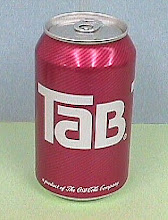For me the biggest challenge of the Challenge was the "white things," specifically pasta and bread. I had switched from white bread to 100% wheat bread quite a while ago, thinking it was the best choice, but as I wrote in an earlier post, that bread is made with added sugar and molasses and has 4 grams of sugar per slice. I've tried wheat pasta in the past too and some brands are OK but it's not the same. I know the real answer is to stop, or at least cut way, way back on eating bread/pasta at all, but that will be a lot harder for me than skipping a bag of M&Ms every afternoon.
So the battle continues. This morning I saw another article about the power of the food industry and how difficult it is to get accurate information and make smart choices about food. Dr. Barbara H. Roberts, writing at The Daily Beast, lays out the ways the American Heart Association is influenced by Big Food, sticking with recommendations that are no longer scientifically supportable. If you've ever bought something at the grocery store based on the Heart Check "this food is healthy for your heart" label, this will make your blood boil:
The AHA introduced the Heart Check Program in 1995 and it has been quite the moneymaker, as the AHA sells the Heart Check stamp-of-approval to food manufacturers. Food companies shell out between $1,000 and $7,500 to be certified by the Heart Check Program—and then there are yearly renewal fees. The program currently endorses 889 foods as “heart-healthy.”
And the Heart Check Program is not the only way the AHA benefits from Big Food companies. In their annual report for 2012-2013, the AHA lists among its lifetime donors of $1 million or more Conagra, Quaker Oats, and Campbell Soups, among others.
Read the whole thing here.


No comments:
Post a Comment